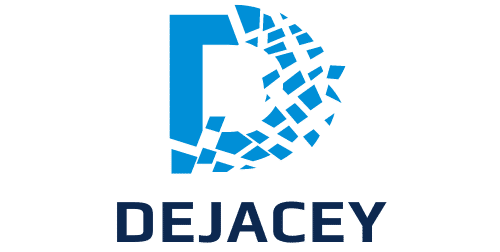Are you interested in improving your health but confused by the plethora of nutrition advice out there? You’ve probably heard a lot of conflicting information on what foods are healthy, how much sleep you need, and how much physical activity is best. If you’re like most people, you want clear, easy-to-follow guidelines that are personally tailored to your unique needs and lifestyle. Enter biometric data and personalized nutrition advice.
Biometric data – the information your body outputs – includes a wealth of health-related information like heart rate, sleep patterns, glucose levels, and more. When paired with personalized nutrition advice, this data can revolutionize your approach to wellness. This article will delve into the impact of using biometric data for personalized nutrition advice.
A lire également : What Are the Top Skills Needed for a Career in UK Renewable Energy Sector?
The Basics: Biometric Data and Personalized Nutrition
Before we dive into the nitty-gritty, let’s establish a basic understanding of the concepts involved. Biometric data refers to the statistics your body produces. It can be as simple as your height and weight, or as complex as your genetic profile.
Meanwhile, personalized nutrition is a dietary approach that takes into account individual differences and preferences. Instead of a one-size-fits-all diet, personalized nutrition aims to tailor recommendations to each person. This approach can use data about an individual’s lifestyle, dietary habits, health history, and – importantly – biometric data.
A voir aussi : How Can Digitized Public Services Improve Efficiency in the UK Government?
When these two concepts come together, they form a powerful tool for improving health and wellness. Let’s look at how.
Using Biometric Data: Uncovering Individual Health Insights
Your biometric data holds a wealth of information about your health. By studying this data, we can gain a deeper understanding of your body’s needs and how it responds to different stimuli.
For example, let’s consider glucose levels. By monitoring your glucose levels throughout the day, we can determine how your body processes different foods. If you notice a spike in glucose after eating a certain food, it might indicate that you should limit your intake of that food to maintain healthy glucose levels.
Sleep data is another valuable source of biometric data. By tracking your sleep patterns, we could uncover insights about how sleep (or lack thereof) impacts your health and nutrition needs.
By applying this kind of analysis to various types of biometric data, we can glean important insights about your health on an individual level.
Personalized Nutrition Recommendations: Tailoring Advice to Your Needs
Once we have analysed your biometric data, the next step is to use those insights to provide personalized nutrition advice.
For example, suppose your glucose data indicates that you are sensitive to carbohydrates. In that case, we might recommend a diet lower in carbs and higher in proteins and fats. Or, if your sleep data shows that you’re not getting enough quality sleep, we might suggest foods known to promote better sleep.
The goal here is not to prescribe a rigid, restrictive diet, but to offer guidance that can help you make smarter food choices. This advice will take into account your individual needs, preferences, and lifestyle, making it easier for you to stick to and see real results.
The Role of Tech Giants Like Google in Personalized Nutrition
Tech giants like Google are playing a significant role in the development and growth of personalized nutrition based on biometric data. Through wearable technology and health-focused applications, these companies collect and analyze individual health data, helping to uncover insights that inform personalized nutrition advice.
For example, Google’s Fitbit devices and the accompanying app collect data on physical activity, heart rate, sleep patterns, and more. This data can then be used to provide personalized health and nutrition recommendations.
The role of these tech giants extends beyond simply providing the platform for data collection and analysis. They are also involved in pioneering research in the field. For example, Google’s Health division is involved in health research projects and partnerships with healthcare organizations, aiming to uncover new ways of using technology to improve health outcomes.
The Bigger Picture: The Impact on Health and Wellness
So, what’s the impact of using biometric data for personalized nutrition advice? It’s a shift towards a more individualized, data-driven approach to health and wellness.
Personalized nutrition can help individuals understand their unique dietary needs and make informed decisions about their food consumption. This approach can lead to improved dietary habits, better health outcomes, and a higher quality of life.
Biometric data adds another layer to this approach. By providing real-time, personalized health insights, it can help individuals monitor their progress and adjust their dietary habits based on empirical evidence. This can lead to more effective, sustainable changes in behavior, and ultimately, better health.
In a world where health information and advice is often confusing or conflicting, personalized nutrition based on biometric data offers a promising solution. By tailoring advice to individual needs and empowering individuals with their own data, this approach can help us take control of our health in a way that’s sustainable and achievable.
The Power of Machine Learning in Personalized Nutrition
Machine learning is a powerful tool that is playing an integral part in the advancement of personalized nutrition. By using algorithms to analyze large amounts of biometric data, machine learning can help identify patterns and trends that would be impossible for humans to detect manually.
Consider this scenario: suppose you’re using a wearable device that collects data on your physical activity, glucose levels, sleep patterns, and heart rate. This device then sends the data to a cloud-based platform where machine learning algorithms analyze it. These algorithms can make sense of your data by comparing it with millions of other data points. They can then identify patterns and generate personalized nutritional recommendations that suit your specific needs.
Machine learning isn’t just about data analysis; it’s also about prediction. It can forecast potential health outcomes based on your current habits, giving you a glimpse into your future health. For instance, if your glucose levels are consistently high after meals, machine learning can predict your risk of type diabetes.
The power of machine learning in personalized nutrition is well documented in various research. According to a free article published in PMC and available on Google Scholar, machine learning has the potential to revolutionize personal nutrition. Another article on PubMed highlighted the role of machine learning in managing blood pressure levels through personalized diet recommendations.
In summary, machine learning is propelling the field of personalized nutrition forward by providing more accurate and personalized nutritional advice.
The Future of Personalized Nutrition: A Conclusion
The impact of using biometric data for personalized nutrition advice is vast and ever-growing. This new approach to health and wellness has the potential to change the way we view and manage our health. It moves us away from generic advice and towards personalized, data-driven recommendations that take into account our unique needs and lifestyles.
As technology advances, we can expect to see even more sophisticated use of biometric data. For example, the use of continuous glucose monitoring devices to track glucose levels in real-time, allowing for more precise nutritional advice. Additionally, the role of machine learning in analyzing and predicting health outcomes from biometric data will continue to grow.
Moreover, tech giants like Google will continue to play a pivotal role in this field. Google Scholar, for instance, is an excellent resource for finding free articles and research papers on personalized nutrition and biometric data. Furthermore, Google’s Health division and their wearable device, Fitbit, are at the forefront of health technology, pushing the boundaries of what’s possible with personalized nutrition.
In conclusion, personalized nutrition, powered by biometric data, is a game-changer. It’s an exciting time for health and wellness, as we shift towards a more personalized, data-driven approach. The future is right here, and it’s all about precision nutrition tailored to our unique body needs. This approach holds the potential to significantly improve health outcomes for everyone. It’s not just about living longer; it’s about living better. And that’s a future worth looking forward to.











